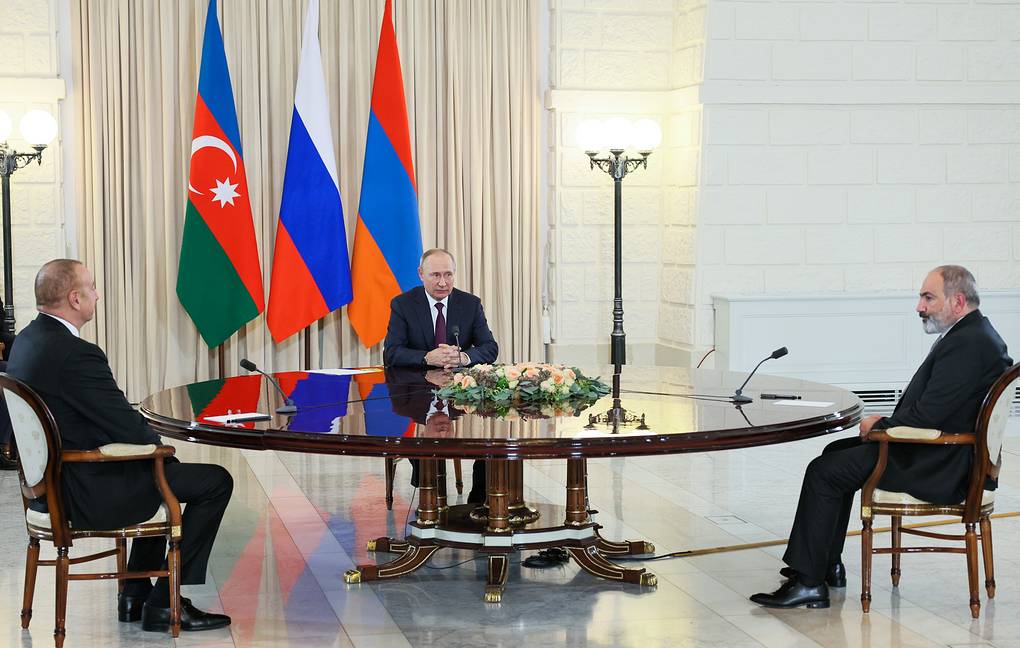During the meeting of the Eurasian Economic Council, hosted by Russian President Vladimir Putin, the two leaders confirmed that they are prepared to normalize relations on the basis of “mutual recognition of territorial integrity,” in the words of both Aliyev and Pashinyan.
Putin said he was “very pleased” that the two former Soviet republics seem to have come to an agreement, “including on transport communications.” This appeared to be a reference to Azerbaijan’s access to the territory of Nakhichevan, located between Armenia and Turkey.
Pashinyan agreed that the two countries were “making good progress in settling our relations” on the basis of mutual recognition, but objected to Aliyev’s use of the phrase “Zangerzur corridor,” saying that this could be regarded as a claim on Armenian territory.
The November 2020 Nagorno-Karabakh truce “speaks of only one corridor, Lachin, which needs to be under the control of Russian peacekeepers but has sadly been illegally blockaded by Azerbaijan,” Pashinyan stated, adding, “However, I wish to confirm Armenia’s readiness to unblock all transport and economic connections and roads passing through Armenian territory.”
“The word ‘corridor’ is not an encroachment on someone’s territory,” Aliyev replied, insisting that one would have to “try very hard or have a very rich imagination” to interpret his phrasing as territorial aspirations, which Azerbaijan does not have. The fact that Armenia has “officially recognized Karabakh as part of Azerbaijan” is a major opportunity to reach a peace agreement, he added.
Nagorno-Karabakh was an autonomous region within Soviet Azerbaijan, but with an ethnic Armenian majority population. It broke away from Azerbaijan even before Baku declared independence from the USSR, triggering an ethnic conflict that claimed thousands of lives before it was frozen by a 1994 truce.
The most recent flare-up, in 2020, resulted in Azerbaijani troops advancing to cut the main road between Karabakh and Armenia proper. Russia stepped in to mediate a ceasefire, which has mostly held ever since.
Pashinyan signaled that Armenia was willing to cede Karabakh ahead of the Moscow meeting, but said he would seek international guarantees for the remaining ethnic Armenians there. He also said Yerevean might consider leaving the Collective Security Treaty Organization (CSTO), suggesting that the Russian-led military bloc had failed to protect Armenia. Pashinyan has taken this line since the September 2022 visit to Yerevan by Nancy Pelosi, who was speaker of the US House of Representatives at the time.
